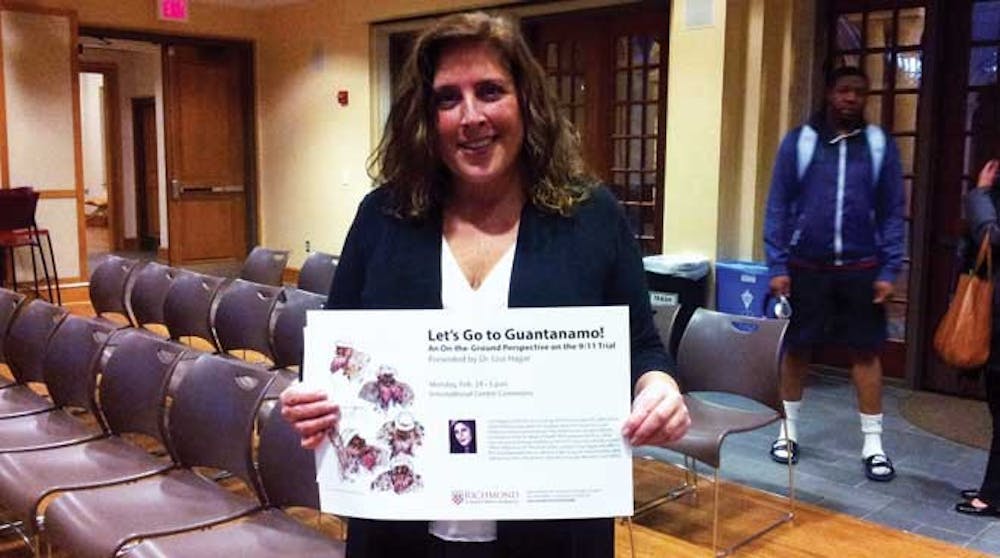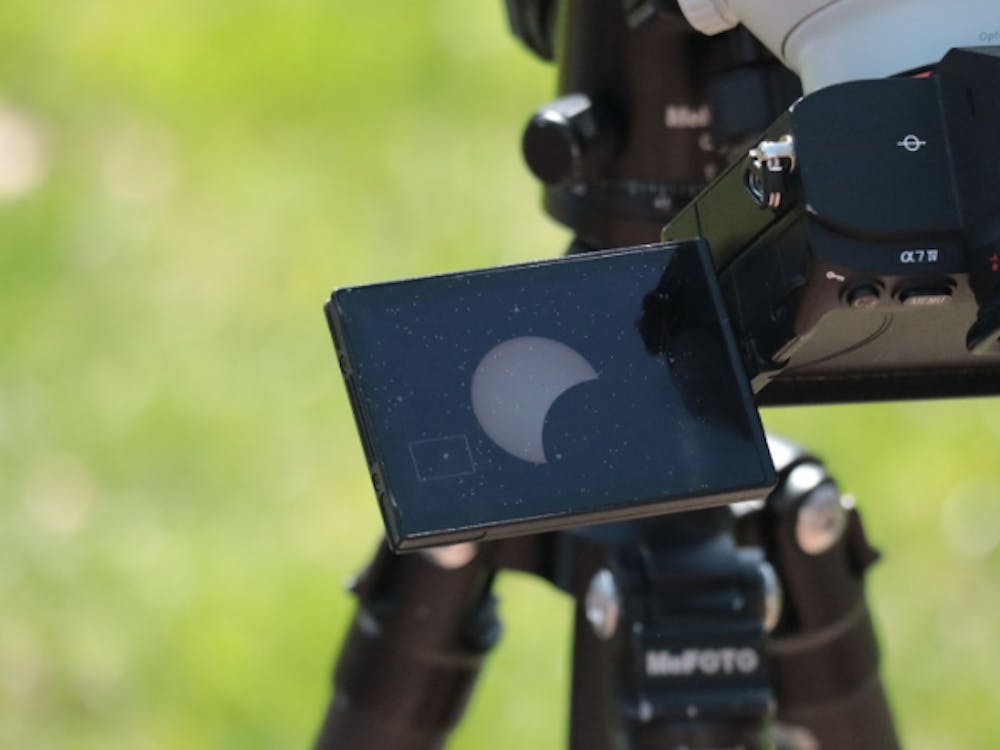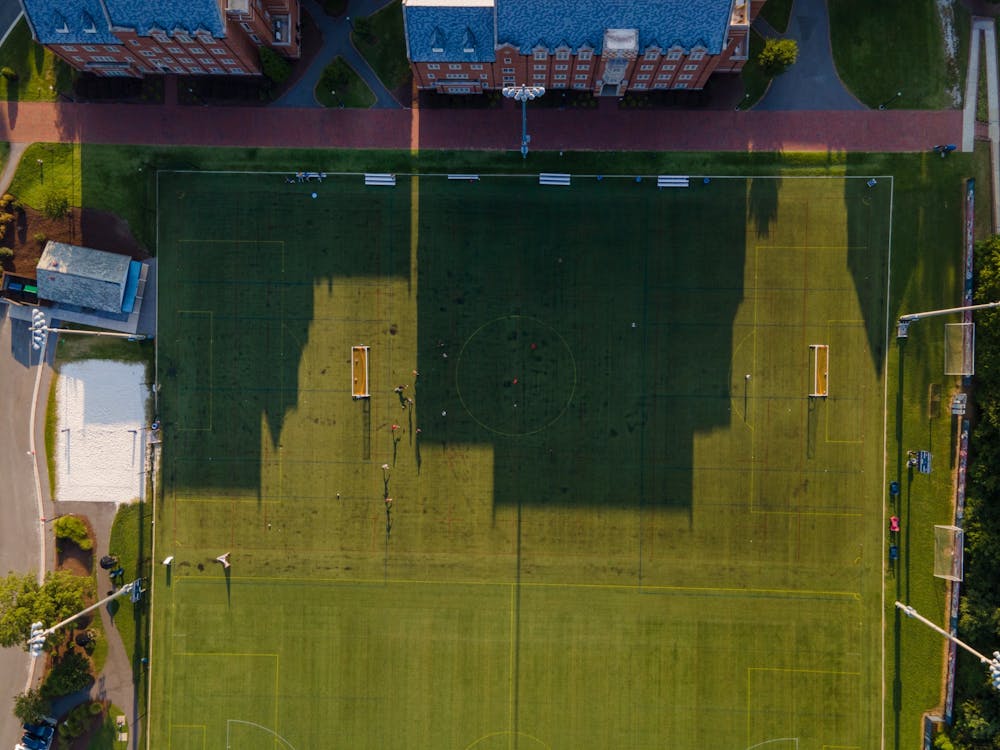Lisa Hajjar, a sociologist from University of California, Santa Barbara, presented a lecture Feb. 24 discussing her research about the military commission trial at Guantanamo Bay for the men responsible for the 9/11 terrorist attacks.
"Let's Go to Guantanamo! An On-the-Ground Perspective on the 9/11 Trial" was an in-detail discussion of 9/11 accountability, the issue of secret prisons and CIA torture.
A small group joined Hajjar in the International Center Commons at 5 p.m. for the lecture.
Hajjar visited Guantanamo three times in 2010, but returned a fourth time in Dec. 2013 to observe the military commission trial of the five 9/11 suspects. This trial was also referred to as "the trial of the century," said Sheila Carapico, professor of political science and international studies.
Hajjar's Guantanamo research is part of a larger book project that she is currently working on about United States torture and the role of lawyers representing prisoners in military commission trials.
Carapico and Hajjar are both on the editorial board of Middle East Report, a publication that reports information and analysis about the Middle East that doesn't typically appear in mainstream media. Carapico invited her for this particular day because they were going to the same meeting in Washington, D.C., last weekend. It was an opportunity for the university to have Hajjar speak while she was on the East Coast, Carapico said.
The Guantanamo Bay detention camp is a military prison in Cuba that opened in early 2002. The facility is designated for high-risk prisoners who are interrogated and prosecuted for war crimes.
After 9/11, the George W. Bush administration wanted to find a place where they could hold people for interrogation and long-term detention without the "pesky intervention from judges and access to lawyers," Hajjar said.
The facility at Guantanamo Bay was inaccessible to the general public for years.
"The thing about Guantanamo is that it is a site selected originally for and continues to operate under a very thick layer of secrecy," she said. "Many of the aspects of working, living, visiting Guantanamo are classified."
Censorship has kept the public from fully understanding Guantanamo. Access is only granted to victims' family members, a limited number of legal observers and journalists.
In some sense, journalists really are the eyes of the world, Hajjar said. "Journalists are the ones who are able to get there, see what's permissible to been seen and report on those things."
Enjoy what you're reading?
Signup for our newsletter
The CIA is one of the most important and controversial aspects of Guantanamo in terms of the military commission.
After 9/11, the Bush administration had the CIA execute arrests and interrogations in a way to fight the war on terror, Hajjar said. Prisoners were brought to Guantanamo to be questioned by the CIA between 2002 and 2004.
"The CIA's program had two main components," she said. "One of them was 'black sites' in various places around the world, where the CIA actually held people freely off-the-books and engaged in torture."
She described the second component as an extraordinary rendition where people were sometimes kidnapped and held indefinitely, and transferred to the interrogation services of other countries including countries with well-established records of torture. It was possible that they were tortured for some time and then sent back or sent to Guantanamo afterward, Hajjar said.
Claims have been made that Khalid Sheikh Mohammed, the alleged mastermind behind 9/11, and four conspirators, Walid bin Attash, Ramzi bin al-Shibh, Ali Abd al-Aziz Ali (Ammar al-Baluchi) and Mustafa Ahmed al-Hawsawi, were tortured in some form following their arrests to extract information.
In 2004, the Supreme Court said in the first landmark ruling pertaining to the war on terror that people couldn't be held indefinitely and that prisoners do have a right to lawyers. After that ruling, the CIA left Guantanamo.
Contact reporter Sheetal Babu at sheetal.babu@richmond.edu
Support independent student media
You can make a tax-deductible donation by clicking the button below, which takes you to our secure PayPal account. The page is set up to receive contributions in whatever amount you designate. We look forward to using the money we raise to further our mission of providing honest and accurate information to students, faculty, staff, alumni and others in the general public.
Donate Now



